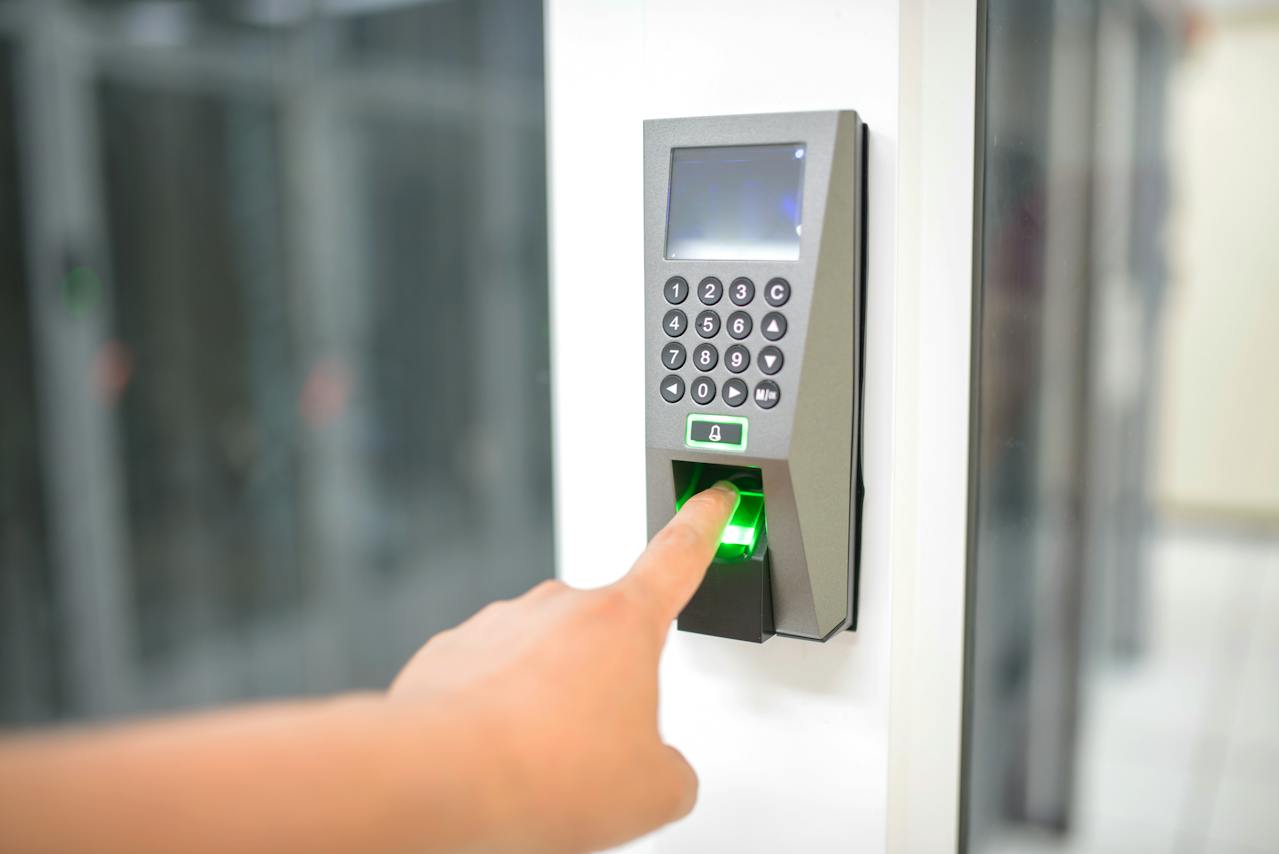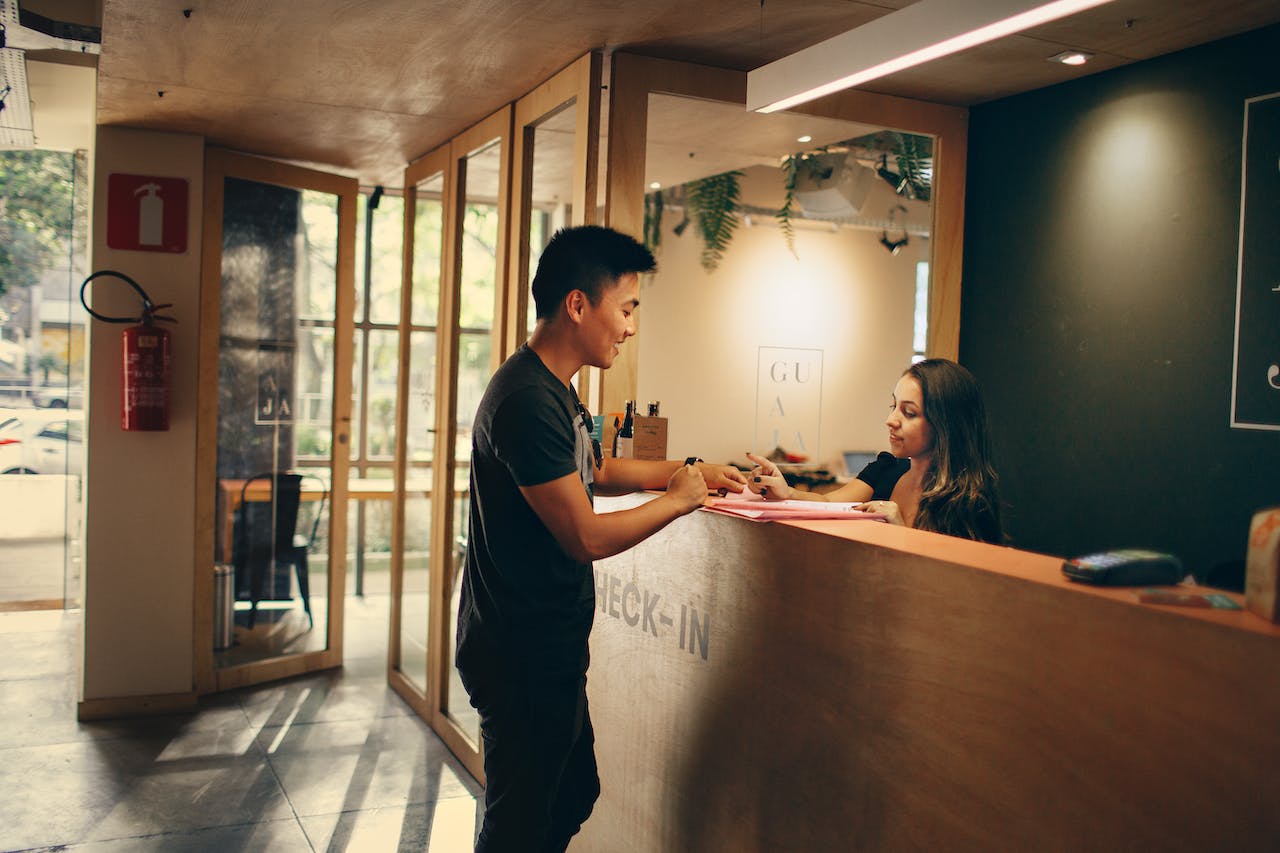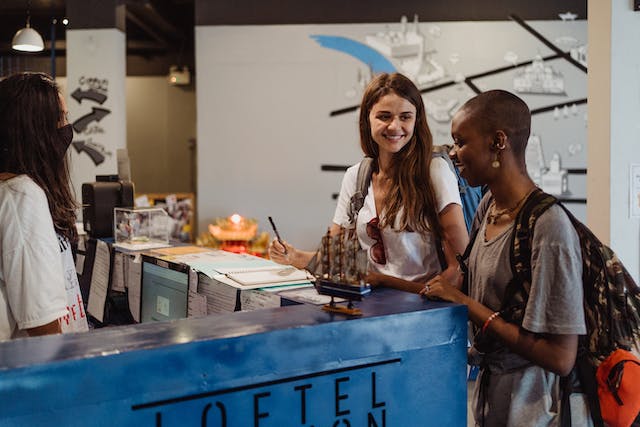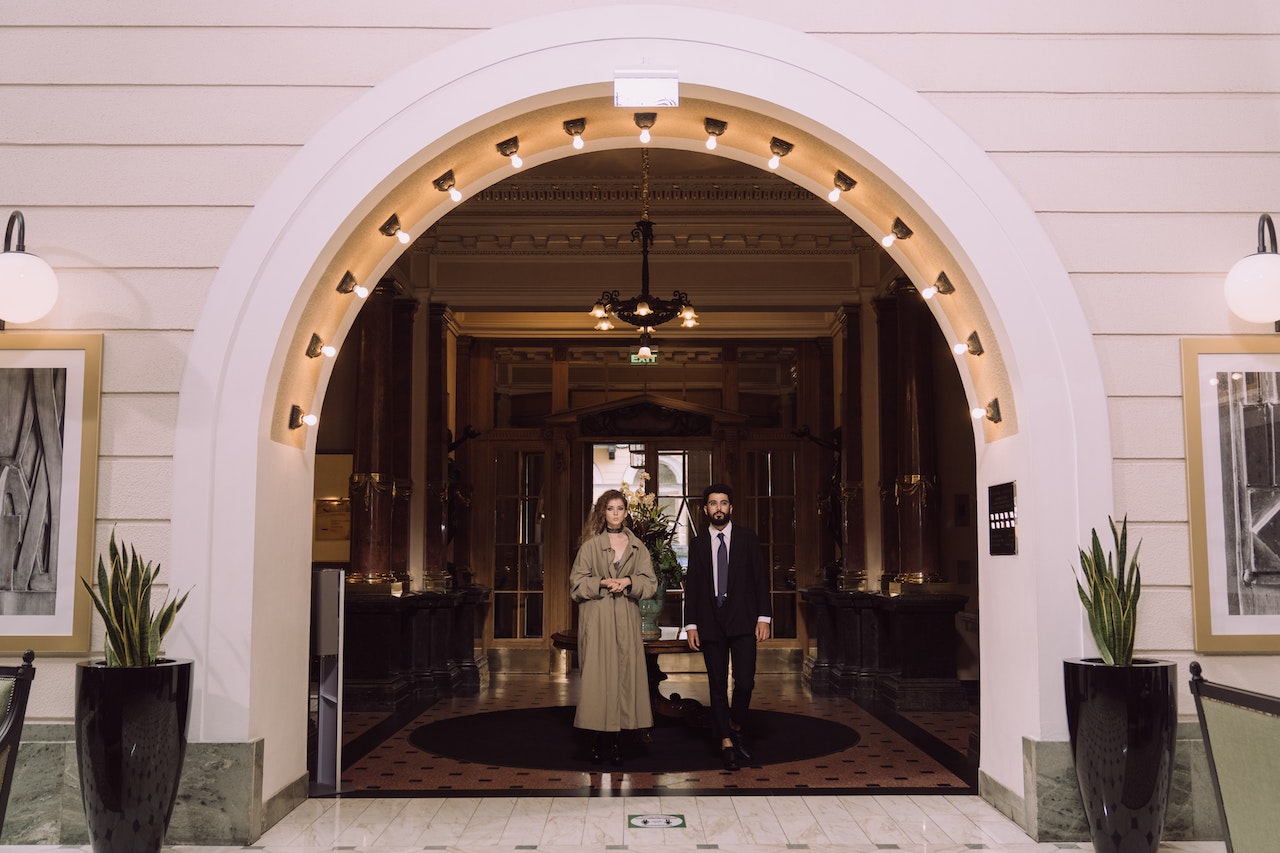Welcome to the era where your property management headaches are about to vanish! If you’re a property manager or owner in the short-term rental space, you’re likely familiar with the challenges: juggling bookings, pricing strategies, guest communications, and maintenance issues. It’s a demanding world where time is a luxury and efficiency is key. This guide dives into how Artificial Intelligence (AI) is not just a buzzword but a transformative tool in reshaping the property management automation, making your life simpler and your business more profitable.
Understanding AI in Property Management
What is Artificial Intelligence (AI) in the Context of Property Management?
At its core, AI in property management refers to the use of advanced algorithms and machine learning techniques to automate and optimize various aspects of managing rental properties. Think of AI as your digital assistant, tirelessly working behind the scenes, analyzing data, making predictions, and executing tasks with precision and speed unattainable by humans alone.
A systematic literature review conducted using structural topic modeling and bibliometric analysis found significant contributions of AI in the real estate and property management sectors. The study, sourced from “Property management enabled by artificial intelligence post Covid-19: an exploratory review and future propositions,” provides a comprehensive framework based on 175 articles from the SCOPUS database, discussing the role of AI in handling challenges and disruptions in these sectors during the pandemic
The Role of AI in Modern Property Management
In the realm of short-term rentals, AI steps in as a game-changer. It streamlines operations, from automating guest communication to optimizing pricing based on real-time market data. AI-powered tools can predict maintenance needs, customize guest experiences, and even assist in making strategic business decisions. The goal? To save you time, reduce costs, and enhance guest satisfaction.
Transition from Traditional Methods to AI-Driven Solutions
The shift from conventional, often manual, methods of property management to AI-driven solutions marks a significant evolution in the industry. Traditional methods, while familiar, are time-consuming and prone to human error. They lack the ability to process vast amounts of data quickly, a necessity in today’s dynamic rental market. AI ushers in a new era of efficiency, accuracy, and scalability, enabling property managers to focus on growth and customer service, rather than getting bogged down in day-to-day operational tasks.
Key Areas of Transformation
Guest Screening and Security

In the world of short-term rentals, trust is paramount. AI steps in as a vigilant gatekeeper, enhancing guest verification and security measures. By harnessing facial recognition technology and advanced background check algorithms, AI can quickly verify guests’ identities, reducing the risk of fraud and unauthorized access. This technology sifts through data points, flags potential security risks, and ensures that only verified guests can make bookings. The result? Peace of mind for both property owners and neighbors, ensuring that properties are not misused and community standards are upheld.
Pricing Optimization
One of the most dynamic aspects of property management is pricing. AI revolutionizes this area by implementing dynamic pricing strategies. Leveraging machine learning, AI analyzes a myriad of factors: local demand, seasonality, events, competitor pricing, and even historical data. This analysis enables property managers to adjust prices in real-time, maximizing revenue during peak times and attracting guests during slower periods. Gone are the days of static pricing or gut-feel adjustments. AI’s precision in pricing ensures competitiveness and profitability in an ever-changing market.
Maintenance and Operations
AI’s predictive capabilities are a game-changer for property maintenance and operations. By analyzing data from various sources, AI can predict maintenance needs before they become urgent issues, scheduling preventative repairs and reducing downtime. This proactive approach saves costs in the long run and avoids negative guest experiences due to maintenance issues. Additionally, AI can automate operational tasks such as energy management, adjusting heating, cooling, and lighting based on occupancy, thereby reducing operational costs and contributing to sustainability efforts.
Customer Experience
In the hospitality industry, customer experience is king. AI personalizes guest experiences by learning from their preferences and behavior. AI-powered chatbots provide instant, 24/7 communication, answering queries, providing recommendations, and even handling complaints, thus enhancing the overall guest experience. This level of personalization and responsiveness, traditionally only achievable by luxury accommodations, is now accessible to short-term rentals, setting them apart in a crowded market.
Benefits of AI-Driven Property Management
Efficiency and Time Savings
The most immediate benefit of AI in property management is the drastic increase in efficiency and time savings. Automation of repetitive tasks like guest communications, booking management, and reporting frees up valuable time for property managers. This efficiency allows for focusing on strategic aspects of the business, such as growth and guest relationship building, rather than getting entangled in operational minutiae.
Data-Driven Decisions
AI turns property management into a science of precision. By providing access to real-time data and analytics, AI aids in making informed, data-driven decisions. This insight encompasses market trends, guest behavior, and operational performance. Property managers equipped with AI-driven data can optimize their offerings, tailor their marketing strategies, and identify areas for improvement, all based on solid data rather than guesswork.
Enhanced Guest Satisfaction
AI’s ability to personalize experiences and swiftly resolve issues leads to enhanced guest satisfaction. From personalized welcome messages to recommendations based on previous stays, AI makes guests feel valued and understood. The swift resolution of maintenance or service issues, often before the guest even notices them, contributes to a seamless and enjoyable stay, encouraging repeat bookings and positive reviews.
Scalability
AI solutions provide scalability, a critical factor for property managers looking to expand their portfolio. Automated systems can easily handle increased volumes of bookings, guest communications, and property maintenance schedules without the need for proportional increases in staff or resources. This scalability ensures that growth does not compromise service quality or operational efficiency.
A study on automated property management in commercial real estate: a case of India,” highlights the evolution and impact of AI in the commercial real estate sector. It discusses how AI-enabled systems manage complex business tasks and improve business productivity, client satisfaction, and organizational efficiency. This includes insights on technology’s role in sustainable solutions for property management
Challenges and Considerations
Balancing Automation and Human Touch
While AI significantly enhances efficiency and accuracy, one of the primary challenges is maintaining the balance between automation and the human touch. In the hospitality industry, personal interaction and a warm, human-centric approach are invaluable. Property managers need to ensure that while AI handles the heavy lifting of operational tasks, the human element in customer service and guest interaction remains prominent. This balance is crucial in crafting memorable guest experiences that foster loyalty and positive reviews.
Privacy Concerns
As AI systems handle vast amounts of personal data, privacy concerns are paramount. Property managers must navigate the delicate balance of leveraging AI for enhanced service while respecting guest privacy. This challenge involves ensuring compliance with data protection regulations such as GDPR, securing data against breaches, and maintaining transparency with guests about how their data is used. It’s crucial to establish trust with guests by demonstrating a commitment to protecting their personal information.
Cost and Integration
Implementing AI in property management comes with its set of financial and technical challenges. The initial cost of AI tools and platforms can be significant, especially for smaller operators. Additionally, integrating these systems with existing property management software and ensuring they work seamlessly can be complex. Property managers must weigh the cost against the long-term benefits and ROI. Furthermore, ongoing maintenance and updates of AI systems require technical expertise and resources.
Training and Adaptation
Adopting AI necessitates a shift in skills and mindset. Property managers and their teams need to be trained to work alongside AI tools effectively. This training involves understanding how to interpret AI-generated data, how to intervene when necessary, and how to leverage AI for strategic decision-making. The adaptation period can be challenging as it involves changing long-standing operational processes and embracing new technologies.
Ethical Considerations
As AI becomes more prevalent in decision-making processes, ethical considerations come into play. Issues such as algorithmic bias and ensuring fairness in areas like guest screening need to be addressed. Property managers must ensure that AI systems are programmed and monitored to avoid discriminatory practices and uphold ethical standards.
Future Trends and Predictions
Emerging Technologies in AI
The future of AI in property management is brimming with potential, with emerging technologies poised to further transform the industry. Advances such as augmented reality (AR) for virtual property tours, voice recognition for more intuitive guest interactions, and IoT integration for smarter property management are on the horizon. These technologies will further personalize guest experiences, streamline operations, and open new possibilities for property managers.
Predictions for AI in Short-term Rentals
Looking ahead, AI is expected to become more sophisticated, with predictive analytics becoming increasingly accurate and insightful. This progression will lead to even more personalized guest experiences and more efficient operational management. AI might also play a significant role in sustainability initiatives, optimizing energy use and contributing to eco-friendly practices in property management.
The Evolution of Guest Expectations
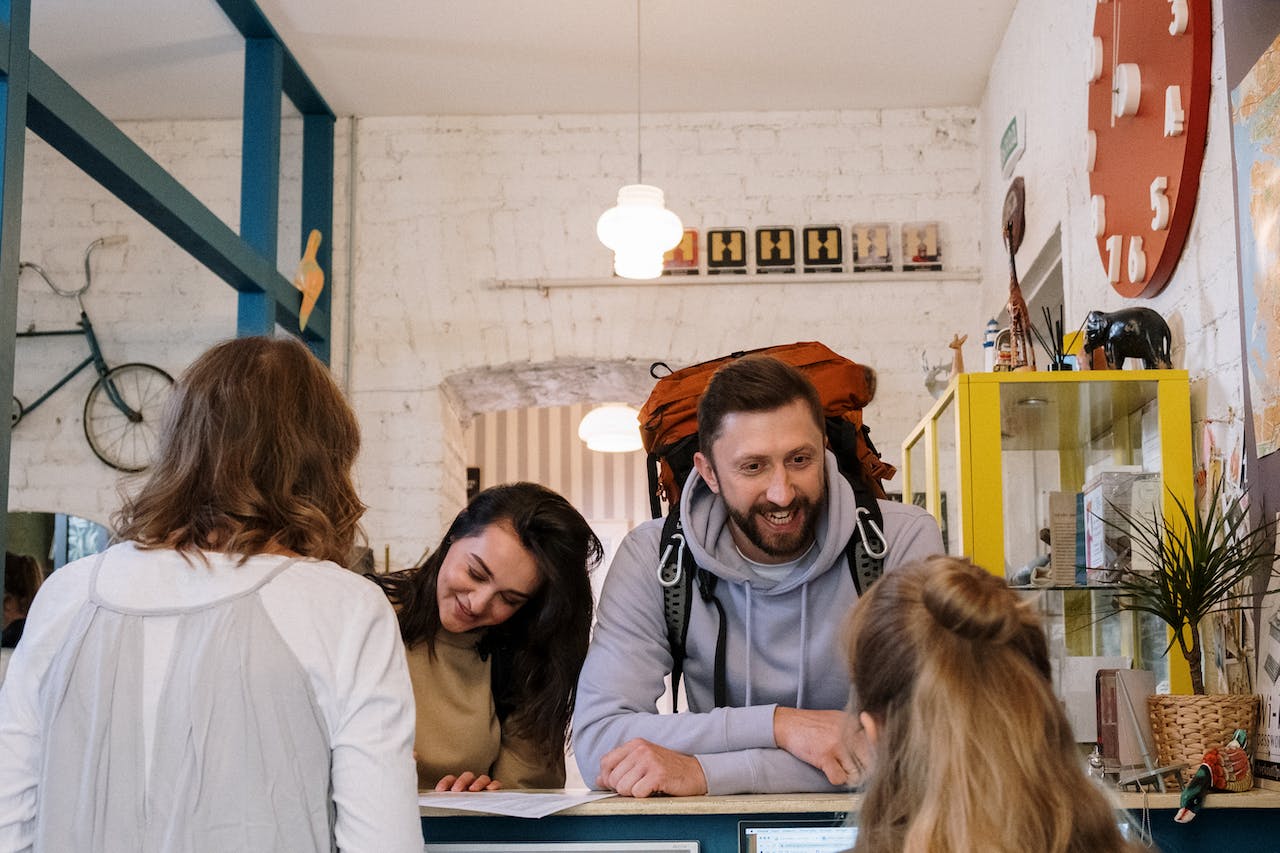
As AI becomes more ingrained in everyday life, guest expectations will evolve. Future guests will likely expect highly personalized experiences, seamless automation, and instant responses to their needs – all of which AI is well-positioned to deliver. Property managers who adopt and adapt to AI technologies will be better equipped to meet these evolving expectations.
The Expanding Role of AI in Business Strategy
AI’s role will expand beyond operational tasks to more strategic realms. It will become instrumental in market analysis, business forecasting, and even in shaping marketing strategies. Property managers who leverage AI for strategic insights will gain a competitive edge in the market.
In conclusion, while AI in property management offers numerous benefits, it also brings challenges and considerations that need careful navigation. Privacy, cost, training, and ethical issues are just as important as the efficiency and data-driven insights AI provides. Looking forward, AI is not just a tool for operational efficiency but a cornerstone in shaping the future of the short-term rental industry. Its role in meeting evolving guest expectations and driving business strategy will be pivotal in determining the success of property managers in this dynamic and competitive sector.

